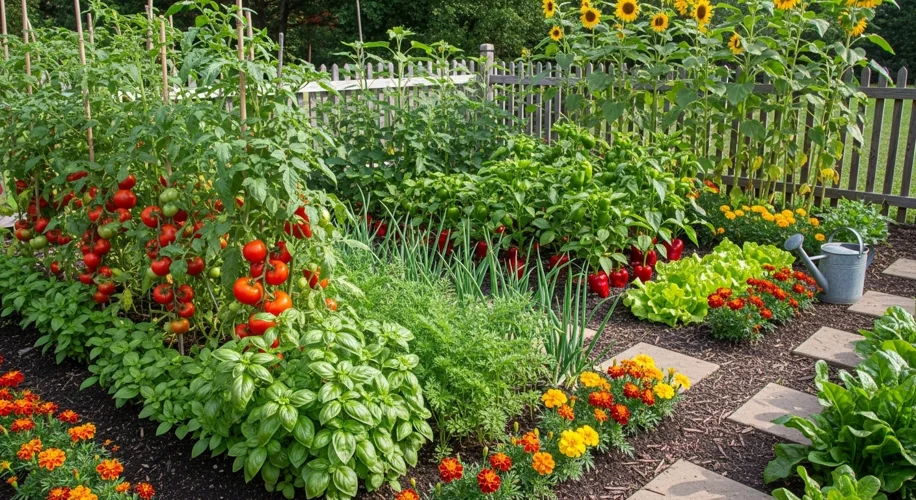Hey fellow gardeners! Elias here. You know, one of the things I love most about my garden is how much it teaches me. It’s not just about digging in the dirt; it’s about understanding the subtle connections between plants, like a quiet conversation happening beneath the soil. Today, I want to chat about something that’s made a real difference in my harvests and in keeping those pesky bugs at bay: companion planting.
Think of it like this: some plants are great neighbors. They help each other out. Maybe one deters a pest that bothers the other, or maybe one’s deep roots help bring up nutrients that a shallow-rooted neighbor can access. It’s nature’s teamwork, and we can totally leverage it in our home gardens.
Let’s talk about some of my favorite pairings:
Tomatoes and Basil: The Classic Duo
This is an oldie but a goodie for a reason. Planting basil near your tomatoes isn’t just about having fresh pesto ingredients right at hand (though that’s a huge bonus!). Basil is said to improve the flavor of tomatoes, and more importantly, it repels flies and mosquitoes. I’ve found my tomato plants seem a bit happier and healthier when basil is around. Give it a try – you might just taste the difference!
Peppers and Onions/Carrots: The Underground Allies
Peppers love a good companion, and a few strategic plantings of onions or carrots can be incredibly beneficial. Onions are known to deter aphids and other common garden pests. Carrots, with their deep taproots, can help break up the soil, making it easier for pepper roots to spread and access water and nutrients. Plus, harvesting carrots around your pepper plants is a nice bonus.
Leafy Greens and Tall, Sturdy Plants (like Corn or Sunflowers): Creating a Microclimate
Leafy greens like lettuce and spinach can sometimes struggle in intense sun. Planting them near taller, sun-loving plants can provide them with much-needed partial shade, especially during the hottest part of the day. This can help prevent bolting (when greens go to seed prematurely) and keep them producing for longer. It’s like giving them their own little shady retreat.
Herbs: The Garden’s Natural Pest Control Squad
Many herbs are powerhouse pest deterrents. Rosemary is fantastic for deterring carrot rust flies and cabbage moths. Mint, while needing to be contained (it can spread!), is excellent at repelling ants and aphids. Lavender is not only beautiful and fragrant but also deters moths and other flying insects. I find a scattering of different herbs throughout my vegetable beds really helps keep things balanced.
Marigolds: The All-Around Protector
If there’s one flower I always have in my vegetable garden, it’s marigolds. They are superstars! Their roots release a substance that can help deter nematodes (tiny soil-dwelling worms that can damage plant roots), and their cheerful blooms are said to deter other pests like whiteflies and aphids. Plus, they add a beautiful splash of color!
Companion planting isn’t a magic bullet, but it’s a simple, natural strategy that can contribute to a healthier, more productive garden. It’s about working with nature, not against it. I encourage you to experiment in your own garden. See what works best for your space and your plants. Happy planting!

